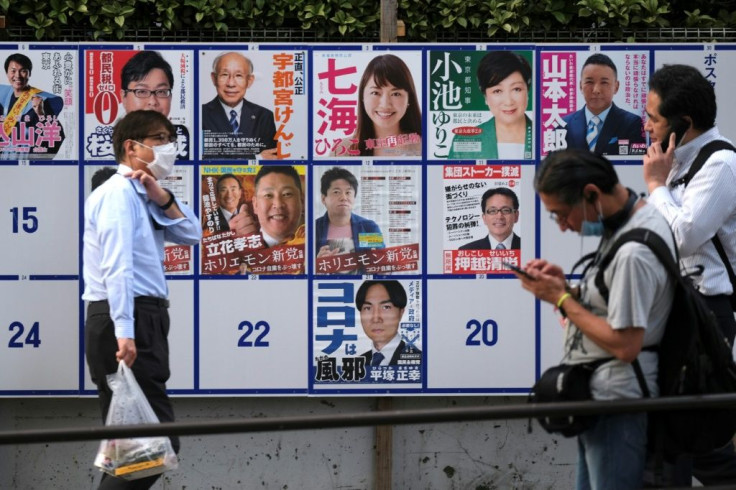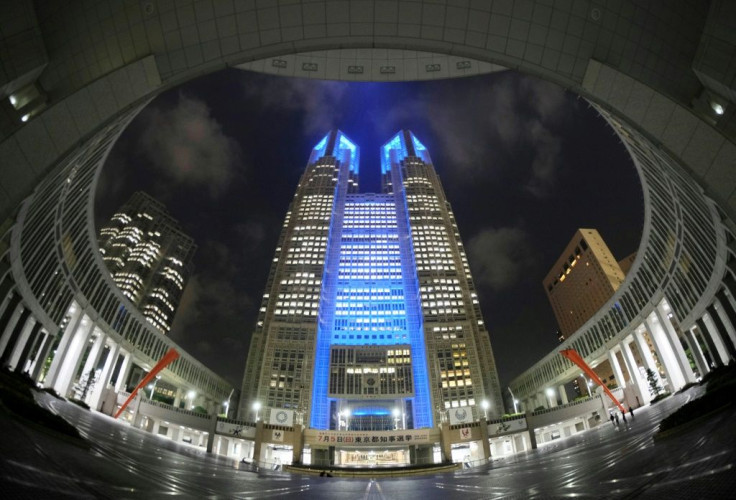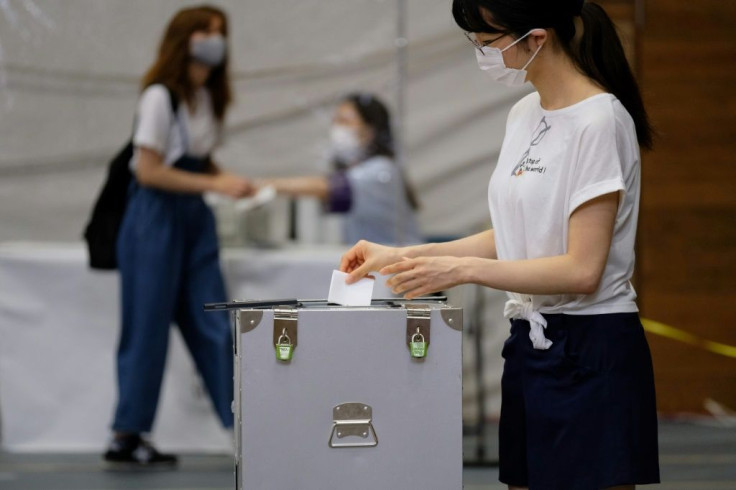Olympics, Virus Dominate Tokyo Governor Vote
The postponed Olympics and a worrying second surge in coronavirus cases are the main issues as Tokyo voters elect a governor on Sunday to run one of the world's most populous cities.
Incumbent Yuriko Koike, a media-savvy veteran of the Japanese political scene, who ran against Prime Minister Shinzo Abe at the last national election by creating a new party, is widely expected to win a second term.
The election comes as Tokyo fights a coronavirus spike that has seen more than 100 new cases reported in recent days -- many from clusters in the city's host and hostess clubs.
In a recent interview with AFP, Koike said she was continuing to "make all-out efforts in the battle against the virus to put on a Games that is full of hope".

The 67-year-old pledged an event "that is safe and secure for athletes and fans from abroad as well as for residents of Tokyo and Japan".
The election during the pandemic forced officials to ensure voting does not result in further spread of the virus.
Staff at polling stations wore masks, face shields and plastic gloves while tape on the floor indicated where voters should wait while maintaining distance among themselves.
Voting booths were sanitised after every use, and voters in masks were urged to use hand sanitiser as they entered, after they used pencils to mark their ballot and as they exited the polling stations.
Koike's main challengers are Kenji Utsunomiya, 73, a lawyer backed by the Constitutional Democratic Party of Japan and two other opposition parties, and Taro Yamamoto, 45, a former actor and leader of the anti-establishment party Reiwa Shinsengumi.

Utsunomiya has pledged to reinforce the capital's medical services that buckled under the weight of the coronavirus crisis, while stressing the importance of offering more support to society's most vulnerable.
If elected, Yamamoto says he would scrap the Tokyo Olympics altogether and has pledged cash handouts to city residents to address the negative economic impact from the pandemic.
Yamamoto appears to be tapping into a growing weariness with the Olympics, now due to begin on July 23, 2021 after the historic one-year postponement due to the coronavirus.
Just over half of Tokyo's residents do not think the Games should be held next year, backing either a further delay or an outright cancellation, according to a poll published late last month.
The sentiment resonated with local resident Hayato Kinoshita.

Koike "is not doing her job", he told AFP after voting. "There are people who enjoy sports and others who don't. If the coronavirus is a concern, we should decide not to host (the Olympics) anymore. Many athletes also say they don't want to come."
Another Tokyo voter Kazuhiro Mawatari said the pandemic and the Olympics must not shift the city's focus away from disaster mitigation.
"If a candidate does not pay enough attention to this because of the coronavirus and Olympics, I don't think I can trust the person very much," he told AFP.
Tokyo and the rest of Japan are routinely hit hard by natural disasters including typhoons and earthquakes.
A record 22 people are running for governor this year but campaigning has been subdued as candidates took measures to avoid spreading the disease.
Some of the more colourful candidates include Masayuki Hiratsuka, a 38-year-old YouTuber who insists the new coronavirus is "just a cold" and people "don't need a new lifestyle" centred around social distancing.
Takashi Tachibana, 52, has vowed to "destroy" public broadcaster NHK -- he is still counted as one of five major candidates by local media.
Koike won the governorship in a landslide vote in 2016, becoming Tokyo's first female leader.
She has been seen as a steady pair of hands during the coronavirus crisis, issuing frequent video messages -- including in English, which is highly unusual for a Japanese politician.
However, she fluffed her biggest political gamble in 2017 when she created a new "Party of Hope" that coalesced opposition to Abe's all-powerful Liberal Democrats in the national election.
This sparked speculation she would ditch her role as Tokyo governor to run for the prime minister.
However, despite initially promising opinion polls, support imploded because of public confusion over her intentions.
© Copyright AFP 2024. All rights reserved.





















